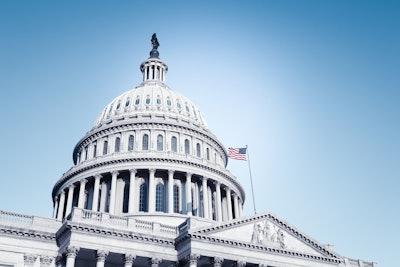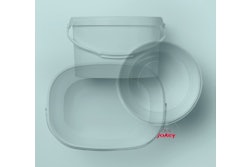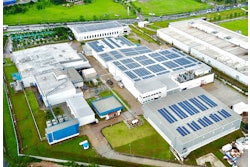Today, Reps. Haley Stevens (MI-11), the Chairwoman of the House Science Subcommittee on Research and Technology, and Anthony Gonzalez (OH-16) introduced bipartisan legislation to reduce plastic waste and improve the global competitiveness of the U.S. plastics recycling industry. The Plastic Waste Reduction and Recycling Act (HR 7228) directs the establishment of a plastic waste reduction and recycling research and development program, calls on the federal government to develop a strategic plan for plastic waste reduction, and calls for the development of standards for plastics recycling technologies.
“We can no longer deny that we face a plastic waste crisis,” said Congresswoman Stevens, during a hearing, “Responding to the Challenges Facing Recycling in the U.S.,” held today at the Dirksen Senate Office Building, in Washington, D.C. “In 2018, the U.S. woke up to the fragile predicament of our plastic waste management system. No longer able to ship our plastic waste to international markets, U.S. cities were forced to cut longstanding recycling programs. Instead, they had to resort to incinerating recyclables or tossing them in landfills. There are plenty of reasons for why and how we got here; however, a major factor is because we failed as a nation to invest in domestic recycling infrastructure and policies to account for the growing demand for plastic. As a result, today, the U.S. recycles just 9% of its plastic waste. The Plastic Waste Reduction and Recycling Act will help develop a world-leading U.S. industry in advanced plastics recycling technologies, and unleash the innovative potential of our nation to address our plastic waste crisis and generate greater value from the plastics we do produce.”
Among the requirements of the Plastic Waste Reduction and Recycling Act, it:
- Directs the Director of the Office of Science and Technology Policy to establish a Plastic Waste Reduction and Recycling Program. The purpose of the program is to improve the global competitiveness of the U.S. plastics recycling industry, ensure U.S. leadership in plastics waste reduction and recycling research, ensure U.S. leadership in national and international standards development, and reduce any harmful effects of plastic waste on the environment.
- Directs the Director of the Office of Science and Technology Policy to establish an interagency committee to coordinate the program and develop a strategic plan for plastic waste reduction and recycling and plastic waste remediation.
- Directs the National Institute of Standards and Technologies to carry out research and provide the metrology basis for standards development for plastics recycling and related technologies, and to develop a clearinghouse to support dissemination of the tools, guidelines, and standards supported by the program.
- Directs the National Science Foundation, Department of Energy, Environmental Protection Agency, and National Oceanic and Atmospheric Administration to support research and other activities on advanced recycling technologies, plastic waste remediation, and the public health impacts of microplastics, among other topics.
- Authorizes funding for five years and invests $85 million in fiscal year 2021 for these activities. Authorizes a 6.5% increase over the previous year’s authorization for each of fiscal years 2022, 2023, 2024, and 2025.
As part of the hearing, The Recycling Partnership (The Partnership) submitted a statement for the record to the committee that addressed the economic value of recycling, described the current recycling challenges facing communities, and recommended actions that Congress can take to help improve the nation’s recycling system.
Read related articles from Packaging World:
Packaging Policy Update & 2020 Outlook
Fighting Back Against Anti-Plastics Legislation
Roadmap Aims to Address Systemic Issues in the U.S. Recycling System
Planning for Recovery Systems Change
The statement, submitted by The Partnership’s Vice President for Policy & Public Affairs, Elisabeth Biser, applauded the committee “for holding a hearing that focuses on the important issues relating to recycling in the United States.”
Biser highlighted a recent partnership survey done in collaboration with SWNS that found 85% of Americans strongly believe in recycling. “Unfortunately, communities are struggling to provide this public service, while facing higher costs driven by difficult markets and an inadequate domestic recycling system,” the statement reads.
The Partnership encouraged Congress to support initiatives to help communities provide more efficient and effective recycling programs, including data collection, educational programs for communities, and needed innovation and upgrades to collection, sorting and processing capabilities.
Association endorsement
The Plastic Waste Reduction and Recycling Act is endorsed by the American Chemistry Council, the American Chemical Society, the American Beverage Association, and the Plastics Industry Association.
Says Keith Christman, ACC’s Managing Director for Plastic Markets, “If passed, this important legislation would help capture the potential value of used plastics through enhanced research and development, as well as the creation of standards, tools and technologies needed to modernize and expand today’s recycling systems….
“Passing the Plastics Waste Reduction and Recycling Act would accelerate research and development on advanced plastics recycling technologies, which would enable a significantly greater range of our plastics resources to be repurposed. It also would increase research and coordination across federal agencies on plastic waste reduction as well as recycling.”
Also supporting the legislation, The Association of Plastic Recyclers issued a release saying, “Today’s hearing comes against the background of the COVID-19 pandemic, which only underscores the importance of maintaining and growing the recycling sector. Recycled material serves as a vital feedstock for the manufacture of a wide range of essential products and the packaging to store and ship those products.
“APR and plastic recycling are an important part of the solution to America’s plastic challenges. Recycling works. We see it happening every day. Smart investments in product and packaging design, infrastructure upgrades to improve our collection and sortation systems, and the use of postconsumer material in new plastic products is the pathway to a more sustainable circular economy.
“With renewed focus from Congress on strategies to strengthen recycling in the United States, APR is confident that a robust public-private partnership can improve the entire recycling chain and provide both economic and environmental benefits. APR members will continue to play an essential leadership role in this process. We welcome Congress’ renewed focus on ways to improve the recycling system and look forward to working with Members of the Senate and the House.”
Striking contrast to ‘Break Free’ proposal
The Plastic Waste Reduction and Recycling Act takes a very different approach to the plastic pollution crisis than one proposed last February, the Break Free From Plastic Pollution Act of 2020. In that Democrat-backed proposal, the economic burden of recycling would be placed in the hands of CPGs and packaging suppliers and would halt all new investments in plastics production plants.
The legislation would, among other things, would require producers of “covered” products (packaging, containers, foodservice products, and paper) to “design, manage, and finance programs to collect and process product waste that would normally burden state and local governments,” create a nationwide beverage container refund program, reduce and ban certain non-recyclable single-use plastics, require the EPA to develop standardized recycling and composting labels for products and receptacles, and temporarily pause new plastics facilities.
While a number of primarily-environmental NGOs praised the proposed Break Free legislation, plastics organizations were not so complementary. Said Plastics Industry Association (PLASTICS) President & CEO Tony Radoszewski, “As drafted, we do not believe the Break Free From Plastic Pollution Act of 2020 would effectively address pollution in the U.S. or globally. The title of this bill suggests it is more interested in garnering headlines than it is in finding solutions.”
Proposed legislation background
In December 2019, Congresswoman Stevens launched the Congressional Plastics Solutions Task Force, a coalition of lawmakers working together with state and local officials and industry representatives to facilitate investment in recycling technologies and promote education on plastics generation and recovery. As Chair of the Research & Technology Subcommittee, Congresswoman Stevens convened the first Science Committee hearing about recycling in a decade after hearing concerns about the long-term viability of local recycling programs in southeast Michigan.
House Science, Space, and Technology Committee Chairwoman Eddie Bernice Johnson (TX-30), Ranking Member Frank Lucas (OK-03), and Representative Francis Rooney (FL-19) are original co-sponsors of the legislation.

























